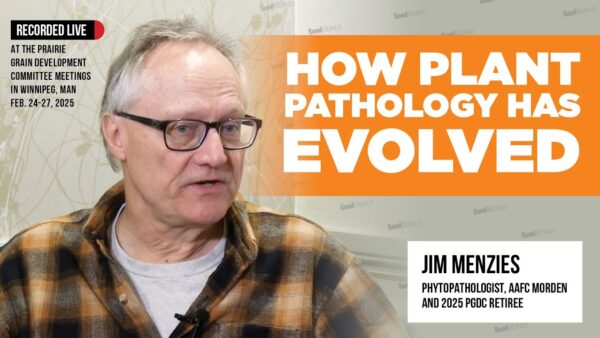It’s a big year for the Canadian Seed Institute — our 20th anniversary. I’ve been executive director for almost seven of those years, and I’m very proud of the successes we’ve had over the past two decades and leading right up until today.
CSI delivers accreditation and monitoring programs for the Canadian seed industry. Over the years we’ve expanded our service range, and now work with a variety of stakeholders, including the organic industry. Right now we’re in the process of becoming accredited as a certification body under the Round Table for Responsible Soy (RTRS) sustainability scheme.
The RTRS is a civil organization made up of members of the soybean value chain, and promotes the responsible production, processing and trading of soy on a global level.
It’s just the latest example of how CSI has stayed relevant and is as important to the agriculture industry as it’s ever been. The role we play within our industry, side-by-side with the other five associations that comprise it, is always top-of-mind at CSI.
There’s maybe no bigger topic in the seed industry right now than the Seed Synergy Collaboration Project, of which we are a part. It’s a discussion designed to forge a next-generation seed system for our country. During our involvement, we’ve been working a lot more collaboratively with the other five organizations, and that has been a big accomplishment for CSI and for our whole industry.
What we’ve heard from our clients is they’re looking for our industry to streamline itself, and that’s what Seed Synergy is designed to accomplish.
The Canadian Food Inspection Agency announced in March that it’s opening up its seed regulations for review, and the Seed Synergy Collaboration Project will be a crucial part of that process. The regulations don’t open very often, so this is a great opportunity for the seed industry to get aligned and impart positive changes for the future. In anticipation of the seed program regulatory review, the Seed Sector Value Chain Round Table set up the Incorporation by Reference Working Group charged with the task of identifying parts of the Seeds Regulations the could be incorporated by reference.
Incorporation of documents by reference is a drafting technique that brings the content of a document into a regulation, without the need to reproduce the document in the regulation itself.
There’s a number of opportunities for us to use that tool and draw pieces out of the regulations that we may want to change on a more regular basis. That’s a key challenge we’ve had. In the past, changes in our industry have taken a long time to happen, because not only do we have to get consensus from the industry, we also have to alter the federal regulatory environment to make the change. If we can incorporate by reference, it makes it a lot easier to affect real change in a more timely manner.
We’re thinking very broadly for the future, and we’ll be keeping our clients, members and the entire industry updated on the latest developments as far as CSI is concerned, and soliciting feedback as well. When you’re dealing with such big ideas, you need to have all hands on deck to do so.
As CSI decides on the direction it wants to take and our board moves forward with its Seed Synergy Collaboration consultations, we’ll have more meeting announcements coming. We’ll be keeping our website, csi-ics.com, updated with a schedule of when the Seed Synergy Collaboration discussions will be in our members’ neighbourhoods.
Stay tuned for that, and we hope you can join us in Halifax, N.S., in July for the joint annual meeting of the Canadian Seed Growers’ Association and the Canadian Seed Trade Association. We’ll be doing a little something special during the event to celebrate our 20th birthday.












